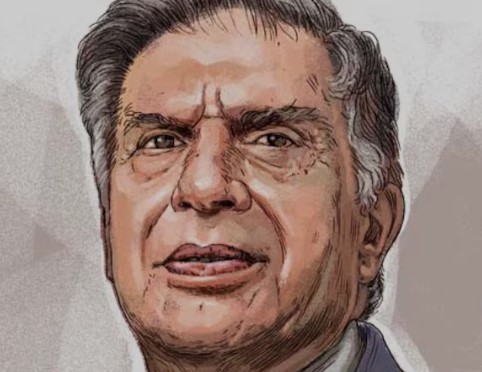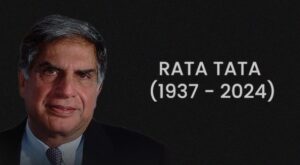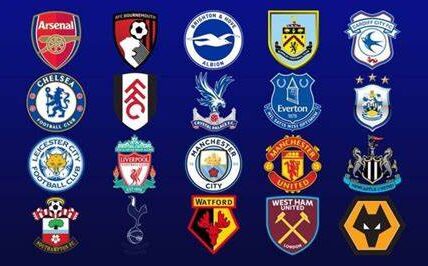1. Early Life and Background
Ratan Naval Tata was born on December 28, 1937, in Surat, Gujarat, into the prominent Tata family. He is the son of Naval Tata and Sonoo Tata. Ratan’s paternal grandfather, Jamsetji Tata, was the founder of the Tata Group, and his lineage is rooted in the values of entrepreneurship and social responsibility.
Ratan’s parents divorced when he was young, and he was raised by his father and his grandmother, whom he credits with instilling strong values in him. He attended Campion School in Mumbai and later moved to the United States for higher education.
2. Education
Ratan Tata graduated with a Bachelor of Architecture from the University of California, Berkeley, in 1962. His education was complemented by an advanced management program at Harvard Business School, where he gained insights into business management and corporate strategy. These experiences equipped him with the knowledge and skills necessary for his future role in the Tata Group.
3. Early Career at Tata Group
Ratan Tata joined the Tata Group in 1962, starting at Tata Steel in Jamshedpur. His hands-on experience on the shop floor helped him understand the operational intricacies of the business. Over the years, he held various positions across the Tata companies, gaining a holistic view of the conglomerate’s operations.
In 1971, he was appointed as the director of the Tata Group’s flagship company, Tata Sons. His work in various capacities helped him develop a strong foundation in leadership and strategic thinking.
4. Ascension to Chairman
In 1991, Ratan Tata was appointed chairman of Tata Sons, succeeding the legendary J.R.D. Tata. His appointment came during a period of significant economic liberalization in India, which presented both challenges and opportunities for the Tata Group.
Under Ratan Tata’s leadership, the Tata Group underwent a transformative phase. He focused on modernization, diversification, and global expansion. His vision was to make Tata a world-class enterprise while maintaining its ethical foundation and commitment to social responsibility.
5. Key Achievements and Transformations
– Global Expansion: Ratan Tata was instrumental in expanding the Tata Group’s presence internationally. Key acquisitions included:
– Jaguar Land Rover: Acquired in 2008, this purchase positioned Tata Motors as a significant player in the luxury automobile market.
– Corus Group: The acquisition of the UK-based steelmaker in 2007 made Tata Steel one of the largest steel producers globally.
– Tetley Tea: This acquisition in 2000 marked Tata’s entry into the global beverage sector.
– Innovation and Product Development: Ratan Tata championed innovation, exemplified by the launch of the Tata Nano in 2008. Marketed as the world’s cheapest car, the Nano aimed to provide affordable mobility to millions of Indian families.
– Corporate Governance: Ratan Tata emphasized ethical business practices and transparency, positioning Tata Group as a leader in corporate governance in India.
6. Philanthropy and Social Initiatives
Ratan Tata’s commitment to philanthropy is a hallmark of his leadership. The Tata Group, through its various trusts, has made significant contributions to education, healthcare, and rural development. Some notable initiatives include:
– Tata Medical Center: Established in Kolkata, this center provides cancer treatment and has made healthcare accessible to many.
– Education Initiatives: The Tata Group invests heavily in educational institutions, including the Tata Institute of Social Sciences and the Indian Institute of Science.
– Community Development: Through various programs, the Tata Group has worked to uplift rural communities and promote sustainable development.
7. Recognition and Awards
Ratan Tata’s contributions to business and society have been recognized through numerous awards and honors, including:
– Padma Bhushan: Awarded in 2008, this is India’s third-highest civilian honor.
– CNN-IBN Indian of the Year: Received in 2009 for his significant impact on Indian industry.
– Honorary Degrees: Ratan Tata has received honorary doctorates from prestigious institutions, recognizing his contributions to business and society.
8. Personal Life
Ratan Tata is known for his humility and simplicity. He is unmarried and has no children, often dedicating his time to his work and philanthropic efforts. He is passionate about dogs and has been involved in animal welfare initiatives.
9. Post-Retirement Activities
After retiring as chairman of Tata Sons in 2012, Ratan Tata continued to play an influential role in the business community. He became an active investor in startups, focusing on technology and innovation. His investments reflect his belief in the potential of young entrepreneurs to drive change.
10. Legacy
Ratan Tata’s legacy is marked by his ethical leadership, commitment to social causes, and significant contributions to the growth of the Tata Group and the Indian economy. He has inspired a new generation of business leaders to prioritize corporate responsibility and ethical practices.
Conclusion
Ratan Naval Tata’s life and career reflect a unique blend of traditional values and modern business practices. His vision for a sustainable and socially responsible business model continues to influence the corporate landscape in India and beyond. Through his leadership, philanthropy, and commitment to excellence, Ratan Tata has left an indelible mark on the Tata Group and the Indian economy.





